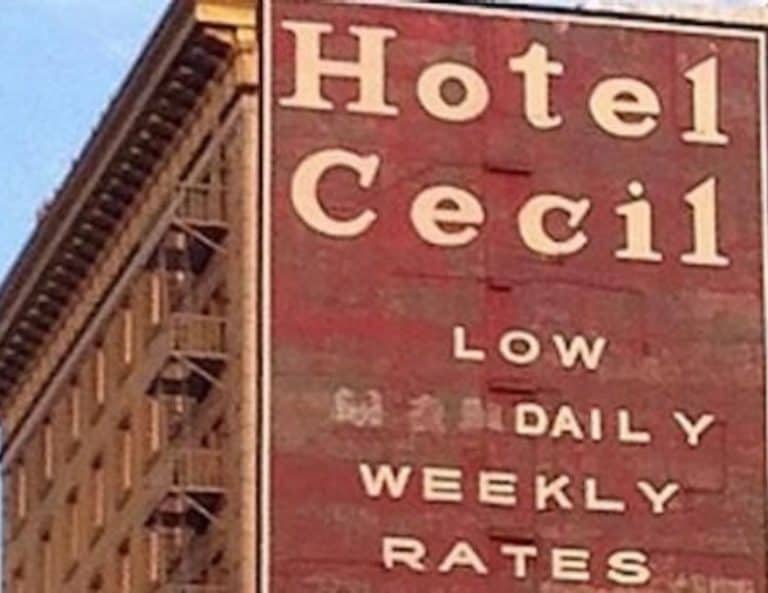When planning a trip, understanding your hotel booking’s financial aspects is crucial. One of the options you might come across is ‘prepaying for your hotel room’.
If you’re short on time, here’s the quick answer: Prepaying for your hotel room involves paying for your stay in advance, often at the time of booking. This option can sometimes offer significant savings, but it comes with some restrictions.
This article will dive deep into prepayment for hotel rooms, its benefits, drawbacks, and what it means for your travel planning.
What Does Prepaying for a Hotel Room Mean?
When you choose to prepay for a hotel room, it means that you pay for your accommodation in advance, before your stay. This is different from the traditional method where you pay at the end of your stay. Prepayment offers several benefits, such as discounted rates and guaranteed availability, but it also comes with certain considerations that you should be aware of.
Definition of Hotel Prepayment
Hotel prepayment refers to the act of paying for your hotel room in full before you arrive at the property. It is a way for hotels to secure revenue in advance and for guests to enjoy certain advantages, such as lower rates or special promotions. Prepayment policies may vary from hotel to hotel, so it is important to read the terms and conditions before making a decision.
How Prepayment Works
When you choose to prepay for your hotel room, you typically provide your credit card details during the booking process. The hotel will charge the full amount of your stay to your card at that time. Some hotels may offer a non-refundable prepayment option, which means that if you cancel or modify your reservation, you may not be eligible for a refund. Other hotels may have more flexible policies, allowing you to cancel or modify your reservation within a certain timeframe without penalty.
It is important to note that prepayment does not necessarily mean that you have to pay for your entire stay upfront. In some cases, hotels may only require a deposit or a portion of the total cost to be paid in advance, with the remainder due upon check-in or check-out. The specific terms and conditions will vary depending on the hotel’s policy.
One advantage of prepaying for a hotel room is that you can often secure a lower rate compared to paying at the time of your stay. Hotels may offer discounted rates for guests who are willing to pay upfront. Additionally, prepayment can provide peace of mind as it guarantees your reservation and ensures that you have a room available for your desired dates.
However, there are also some considerations to keep in mind when prepaying for a hotel room. It is important to carefully read the cancellation and refund policies. If you need to cancel or modify your reservation, you may incur fees or lose your prepayment altogether, depending on the hotel’s policy. It is also crucial to consider your travel plans and any potential changes that may arise before committing to prepayment.
Benefits of Prepaying for Your Hotel Room
Potential Savings
One of the primary benefits of prepaying for your hotel room is the potential for significant savings. Many hotels offer discounted rates for guests who pay in advance. These savings can vary depending on the hotel and the time of year, but they can often be substantial. By prepaying, you may be able to secure a room at a lower rate than if you were to book and pay upon arrival. This can be especially advantageous for budget-conscious travelers or those looking to make their travel dollars go further.
Ease of Budgeting
Prepaying for your hotel room also provides the benefit of ease of budgeting. By paying for your accommodations in advance, you can have a clear understanding of how much you have already spent on your trip. This can help you better manage your overall travel budget and allocate your funds accordingly. With the cost of accommodations already taken care of, you can focus on enjoying your trip without worrying about any surprise expenses at the hotel.
Securing Your Booking
Another advantage of prepaying for your hotel room is that it helps secure your booking. In popular travel destinations or during peak travel seasons, hotel rooms can fill up quickly. By prepaying, you can guarantee that your desired room will be reserved for you. This can provide peace of mind, knowing that you have a confirmed reservation and won’t have to scramble to find alternative accommodations. It also eliminates the risk of your chosen hotel being fully booked when you arrive.
When considering prepayment for your hotel room, it’s important to weigh the potential benefits against any potential drawbacks. Be sure to read the terms and conditions of the prepayment policy, as cancellation or modification fees may apply. Additionally, consider the overall flexibility of your travel plans before committing to prepayment.
For more information on prepayment policies and potential savings, you can visit reputable travel websites such as Booking.com or Expedia.com.
Drawbacks of Prepaying for Your Hotel Room
While prepaying for your hotel room may seem like a convenient option, it is important to consider the potential drawbacks before making a decision. Understanding these drawbacks can help you make an informed choice and avoid any unexpected issues during your stay.
Restrictions on Changes and Cancellations
One of the main drawbacks of prepaying for your hotel room is that it often comes with strict restrictions on changes and cancellations. Once you have paid in advance, you may find it difficult or even impossible to make any modifications to your reservation. This can be problematic if your plans change or if unforeseen circumstances arise. It is essential to carefully read the terms and conditions before prepaying to ensure you are comfortable with the restrictions in place.
Delay in Services Rendered
Another potential drawback of prepaying for your hotel room is that it can result in a delay in services rendered. Since you have already paid for your stay, the hotel may not prioritize your needs as they would for guests who have yet to pay. This could mean slower response times for requests or a lower level of service overall. It is important to consider whether the potential delay is worth the convenience of prepayment.
Potential for Lower Prices Later
Prepaying for your hotel room also means that you could miss out on potential lower prices later on. Hotel rates can fluctuate, and last-minute deals or discounts may become available closer to your travel date. By prepaying, you are locking yourself into a set price, potentially missing out on savings. If you are flexible with your travel plans and willing to take a bit of a risk, waiting to book your hotel room may allow you to secure a better deal.
It is important to weigh these drawbacks against the advantages of prepayment before making a decision. If you are confident in your travel plans and have thoroughly researched the terms and conditions, prepaying for your hotel room can still be a convenient and cost-effective option. However, it is always wise to consider the potential drawbacks and make an informed choice that aligns with your individual needs and preferences.
Tips for Prepaying for Your Hotel Room
Consider Your Travel Plans
When it comes to prepaying for your hotel room, it’s essential to consider your travel plans. Are you certain about your arrival and departure dates? Is there a chance that your plans might change? Prepaying for a hotel room can offer significant savings, but it also means that you may not be able to make any modifications or cancellations without incurring a fee. If you’re confident about your travel dates and have no intention of making changes, prepaying can be a great option to secure a lower rate.
Read the Fine Print
Before committing to prepaying for your hotel room, take the time to read the fine print. Pay close attention to the cancellation policies and any additional fees that may apply. Some hotels may offer flexible cancellation policies, allowing you to make changes without penalty up to a certain date. Others may have strict policies that limit your options once you’ve prepaid. By understanding the terms and conditions, you can avoid any potential surprises or unexpected charges.
Look for Best Price Guarantees
When prepaying for your hotel room, it’s always a good idea to look for hotels that offer a best price guarantee. This means that if you find a lower rate for the same room on another website, the hotel will match or beat that price. Best price guarantees can give you peace of mind, knowing that you’re getting the best deal available. Be sure to check the hotel’s website or contact their customer service to learn more about their price match policy.
Remember, prepaying for your hotel room can be a cost-effective option, but it’s important to carefully consider your travel plans, read the fine print, and look for best price guarantees. By doing so, you can make an informed decision and enjoy your stay without any unexpected surprises.
Conclusion
Prepaying for your hotel room can be an attractive option for securing a booking and potentially saving money. However, it comes with its set of drawbacks, such as restrictions on changes and cancellations. As a traveler, it’s important to weigh these pros and cons, understand the specifics of the prepayment policy, and make an informed decision that best suits your travel needs. Remember, a successful trip starts with thorough planning, and understanding your booking’s financial aspects is a key part of this process.






